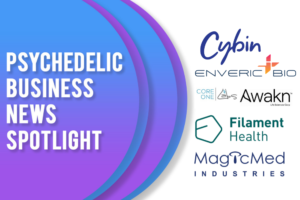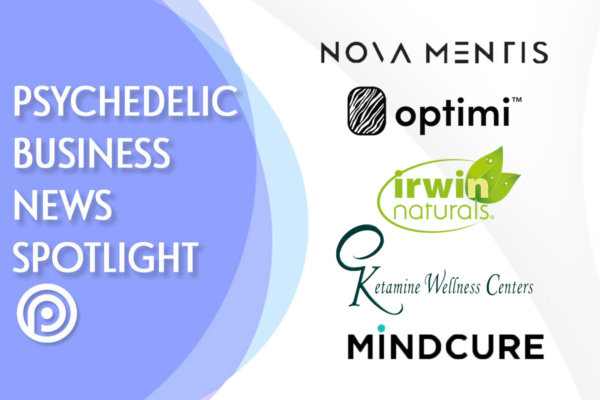
The acceptance of cannabis has been a monumental decision within the United States. Not only has it produced an industry of its own, but it’s also promoted neighboring industries to branch out. The psychedelics industry is one of them. While the majority of psychedelic drugs remain illegal, researchers have been working closely with medical experts to innovate their practices. Psychedelic therapy is a product of this innovation and has branched out in the past few years.
This article will help you understand what’s happening in the world of psychedelics. From benefits to risks and rewards, you’re getting the scoop of it all!
The Revolutionary Benefits of Psychedelic-Assisted Therapy
After years of facing negative press and misleading labels, psychedelics may finally be able to claim well-deserved space in the medical field — perhaps even as part of a healthcare benefit. While there was an outright ban on such drugs, experts have spent years in controlled research to gauge the true benefits of psychedelics for the human mind.
Currently, MDMA-assisted therapy for PTSD and psilocybin for depression disorders await approval from the FDA. Meanwhile, practitioners are creating spaces to give their patients this revolutionary experience.
Here are three areas that psychedelic therapy benefits its patients:
1. Depression
For the treatment of depression, psychedelic drugs, coupled with known psychotherapy practices and medication, are showing promising signs.
Solely relying on anti-depressants hasn’t worked, since many individuals either don’t respond to the medication or experience a delay in relief.
Ketamine, a nasal spray, is becoming popular as it responds quickly and provides relief within a few hours. While it’s legal, it’s not FDA-approved.
Plus, treatment-resistant depression shows a positive response to psychedelic therapy, which is a great sign for its potential long-term benefits.
2. Post Traumatic Stress Disorder
One almost FDA-approved treatment is MDMA for PTSD. Its research has shown convincing results and is predicted to greatly impact patients’ lives.
As MDMA is a serious narcotic, it can’t be administered to everyone at large without bigger group tests and further research on possible side effects. However, it also shows significant results for those who struggle with multiple mental illnesses, which makes it a promising tool.
The open access to the drug is another point authorities fear, as addiction is one of the illnesses that psychedelic therapy aims to cure, not reinforce.
3. Terminal or Life-Threatening Illnesses
Patients dealing with life-threatening or terminal illnesses struggle greatly with their mental health, but Psychedelic therapy can change that for them.
Such patients struggle with heightened anxiety and depression, which can lead to self-harm and suicidal tendencies as well. For them, psychedelic therapy provides a sense of comfort or escape from these crushing pressures. It can also relieve them from symptoms long enough to introduce them to other support methods.
For the time being, Psilocybin is proving successful in small-group research. Researchers may identify any side effects or other problems by trying it in larger groups before introducing it as a medication for the general patient group.
Hindrances Within the Psychedelics Industry
Psychedelic drugs remain a sensitive issue in the legal world because the majority of states in the U.S. group them as Schedule I Drugs. Some notable exceptions exist, but they don’t fully legalize their sale, possession, or use.
The use of any Schedule I Drug is an offense under federal law, so psychedelic therapists or practitioners may be charged or face serious lawsuits. Under the few circumstances that allow psychedelic therapy, they would still require some form of legal or financial protection.
Psychedelic effects are possible through other drugs beyond the common lists used by authorities. Cannabis strains with high THC levels also qualify as psychedelics.
With general laws permitting the use of 0.3% or less THC (for cannabis-related products), your options for medicinal drugs can be restricted. But if you go too far, you’re vulnerable to action from the state.
Besides legal battles with the government, you’ll also need to be prepared for the backlash from your patients. With cases against therapeutic works on the rise, you’re susceptible to claims of mistreatment, malpractice, false diagnoses, etc.
How Can You Minimize Psychedelic Therapy Risks and Maximize Rewards?
The answer to any financial or legal gamble in the professional world is insurance.
You might find it too general, but the right psychedelics insurance can save you from legal fees, wrongful claims, and even the closure of a business.
Insurance plays a key role in psychedelics risk management, so consider it as a part of your professional investment. Rather than getting a one-size-fits-all package, tailor your coverage to all the unique needs of therapy practice.
You may also like: Psychedelic Therapy As Employee Health Benefit is Becoming Possible and the First Results Are In
Some policies you should consider are:
General Liability
The all-rounder insurance, General Liability, has you covered on all basic grounds. That includes accidental damages, injuries, and wrongful claims. You can save a pretty penny by investing in this policy early on since you won’t pay any fees or repayment out of pocket. As a therapy clinic, you must prepare for any unforeseen mishaps.
Property Insurance
You’re taking on a significant responsibility by renting or owning property for your practice. Ensuring your workplace saves you the hassle of repairs or renovations caused by accidents or emergencies and helps you re-open sooner. So, don’t worry because you won’t have to use your rainy day funds to fill an accidental hole in the wall.
Professional Liability
With any practice, there is a professional responsibility for safe and sound operations, procedures, and practices. In cases of subpar service, or mistakes, you can face great repercussions. Having professional liability coverage keeps you running, even when you’re fighting against the claim of a previous unsatisfied patient.
Medical Malpractice Insurance
Being in the medical field requires an extra layer of protection. Working with healthcare is a huge responsibility, closely observed by regulating parties and your patients. In the unfortunate case of something going wrong, medical malpractice insurance will safeguard your right to practice in your field.
Final Thoughts
Psychedelic therapy may be a turning point in history, and we’ll surely witness it soon. While partaking in this scientific development, using safe operational measures and protecting your practice with the right Psychedelic Therapy Insurance is best.






